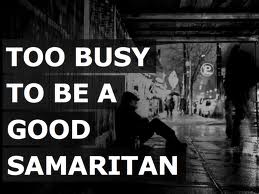 John Drane explores a new spiritual vision for Scotland when he writes….
John Drane explores a new spiritual vision for Scotland when he writes….
The first thing to say is that Scotland is not the same as England! We have different legal, educational, and healthcare systems from our nearest neighbours, and soon we might even be a foreign country. Our churches are also different.
Anglicans are Scottish Episcopalians. The national church, the Church of Scotland, is Presbyterian. And whatever you do, don’t confuse the Free Church of Scotland with the Free Churches in England! But the challenges and opportunities with which our churches are wrestling are the same as everywhere else in the developed countries of the western world.
The difficulties facing our churches are by no means unique, though we do have some distinctive historical baggage: in common with other European countries where the Reformation had a more stridently puritanical flavour than in England, Scotland is arguably a more secular country than other parts of the UK and many people are openly cynical about the role of religious institutions. Rapid and discontinuous cultural change has also taken its toll on traditional church life and though there are pockets of new life, in many places the story is one of declining numbers and aging congregations.
More than a decade ago, the Church of Scotland’s Church without Walls report (2001) gave a focus for new thinking about the nature of a missional church. In 2011 another report (Reformed, Reforming, Emerging and Experimenting), which I jointly authored with Olive Fleming Drane, documented the emergence of new forms of Christian faith community and highlighted the need for fresh thinking that would recognise these ventures within the structures of the church.
As the Joint Emerging Church Group of the Ministries Council and the Mission and Discipleship Council reflected on all this, the obvious conclusion was that the Church of Scotland should become a partner in Fresh Expressions. One church leader recently suggested that this is the first time since the Reformation that the Church of Scotland and the Church of England have collaborated on specifically missional issues (as distinct from social and political matters). I have no idea whether that is entirely true, but it is undoubtedly a momentous opportunity for churches on both sides of the border.
Of course, Fresh Expressions has been represented right from the start in Scotland through those congregations that belong to the Methodist Church and more recently the URC and Salvation Army. They will welcome the Church of Scotland’s partnership, not least because the Kirk is numerically dominant over all other Protestant denominations (seven or eight times bigger than all the rest put together) and when it embraces something, that often creates an environment in which others can flourish more easily.
Unlike other denominations though, the Church of Scotland has a presence throughout the country. So this is a significant moment for those who are concerned with the re-evangelisation of Scotland. Central to this vision is an invitation to every parish to explore the possibilities of establishing an appropriately contextualised fresh expression of church by the year 2020 – something that will hopefully be pursued in an ecumenical context.
This will be a major challenge to many congregations, where change of any sort can seem alien and threatening. But a growing number of people have already glimpsed new possibilities and are eager to push forward with a new vision.
Since 2010, more than 200 individuals of all denominations have completed the mission shaped ministry course in Inverness, Glasgow, Edinburgh, and Aberdeen, whilst vision days have taken place in other locations. The new partnerships will hopefully create spaces in which these people will be released to be in the vanguard of the development of fresh expressions in both urban and rural locations.
For there is no doubt that – especially at this time of national uncertainty, as we consider our relationship with the rest of the UK – our people need a new spiritual vision that will take us forward into what by any definition is an unknown future, to hear the gospel afresh in ways that will be comprehensible within today’s culture while also remaining true to the call of Jesus.
All very fine – but what is the vision and more to the point how do we make it happen?





